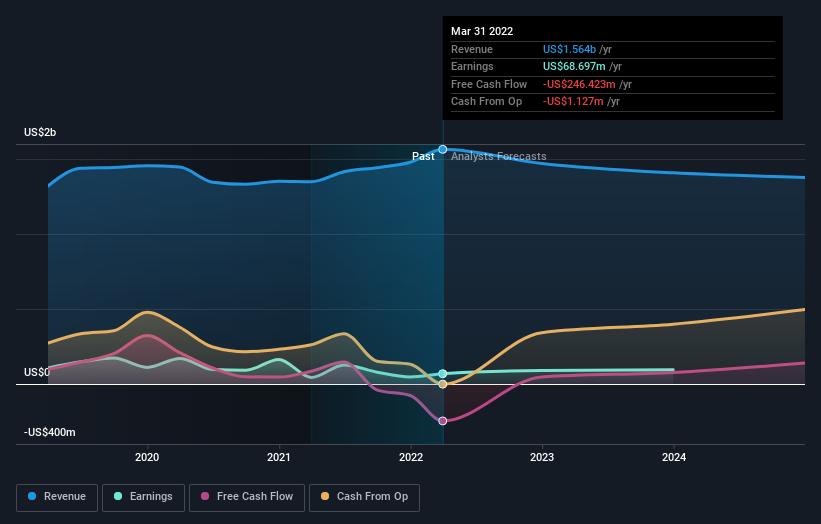- Chile
- /
- Electric Utilities
- /
- SNSE:ECL
public companies who own 60% along with institutions invested in Engie Energia Chile S.A. (SNSE:ECL) saw increase in their holdings value last week

If you want to know who really controls Engie Energia Chile S.A. (SNSE:ECL), then you'll have to look at the makeup of its share registry. The group holding the most number of shares in the company, around 60% to be precise, is public companies. That is, the group stands to benefit the most if the stock rises (or lose the most if there is a downturn).
Following a 13% increase in the stock price last week, public companies profited the most, but institutions who own 25% stock also stood to gain from the increase.
In the chart below, we zoom in on the different ownership groups of Engie Energia Chile.
View our latest analysis for Engie Energia Chile

What Does The Institutional Ownership Tell Us About Engie Energia Chile?
Institutional investors commonly compare their own returns to the returns of a commonly followed index. So they generally do consider buying larger companies that are included in the relevant benchmark index.
We can see that Engie Energia Chile does have institutional investors; and they hold a good portion of the company's stock. This can indicate that the company has a certain degree of credibility in the investment community. However, it is best to be wary of relying on the supposed validation that comes with institutional investors. They too, get it wrong sometimes. If multiple institutions change their view on a stock at the same time, you could see the share price drop fast. It's therefore worth looking at Engie Energia Chile's earnings history below. Of course, the future is what really matters.

Hedge funds don't have many shares in Engie Energia Chile. Looking at our data, we can see that the largest shareholder is ENGIE SA with 60% of shares outstanding. With such a huge stake in the ownership, we infer that they have significant control of the future of the company. With 4.0% and 3.1% of the shares outstanding respectively, Administradora de Fondos de Pensiones Cuprum S.A. and Administradora de Fondos de Pensiones ProVida S.A. are the second and third largest shareholders.
While studying institutional ownership for a company can add value to your research, it is also a good practice to research analyst recommendations to get a deeper understand of a stock's expected performance. Quite a few analysts cover the stock, so you could look into forecast growth quite easily.
Insider Ownership Of Engie Energia Chile
The definition of an insider can differ slightly between different countries, but members of the board of directors always count. Company management run the business, but the CEO will answer to the board, even if he or she is a member of it.
I generally consider insider ownership to be a good thing. However, on some occasions it makes it more difficult for other shareholders to hold the board accountable for decisions.
We note our data does not show any board members holding shares, personally. It is unusual not to have at least some personal holdings by board members, so our data might be flawed. A good next step would be to check how much the CEO is paid.
General Public Ownership
The general public, who are usually individual investors, hold a 15% stake in Engie Energia Chile. While this group can't necessarily call the shots, it can certainly have a real influence on how the company is run.
Public Company Ownership
Public companies currently own 60% of Engie Energia Chile stock. It's hard to say for sure but this suggests they have entwined business interests. This might be a strategic stake, so it's worth watching this space for changes in ownership.
Next Steps:
It's always worth thinking about the different groups who own shares in a company. But to understand Engie Energia Chile better, we need to consider many other factors. Consider for instance, the ever-present spectre of investment risk. We've identified 1 warning sign with Engie Energia Chile , and understanding them should be part of your investment process.
But ultimately it is the future, not the past, that will determine how well the owners of this business will do. Therefore we think it advisable to take a look at this free report showing whether analysts are predicting a brighter future.
NB: Figures in this article are calculated using data from the last twelve months, which refer to the 12-month period ending on the last date of the month the financial statement is dated. This may not be consistent with full year annual report figures.
Valuation is complex, but we're here to simplify it.
Discover if Engie Energia Chile might be undervalued or overvalued with our detailed analysis, featuring fair value estimates, potential risks, dividends, insider trades, and its financial condition.
Access Free AnalysisHave feedback on this article? Concerned about the content? Get in touch with us directly. Alternatively, email editorial-team (at) simplywallst.com.
This article by Simply Wall St is general in nature. We provide commentary based on historical data and analyst forecasts only using an unbiased methodology and our articles are not intended to be financial advice. It does not constitute a recommendation to buy or sell any stock, and does not take account of your objectives, or your financial situation. We aim to bring you long-term focused analysis driven by fundamental data. Note that our analysis may not factor in the latest price-sensitive company announcements or qualitative material. Simply Wall St has no position in any stocks mentioned.
About SNSE:ECL
Engie Energia Chile
Engages in the generation, transmission, and supply of electricity primarily in Chile.
Undervalued with mediocre balance sheet.
Similar Companies
Market Insights
Community Narratives





